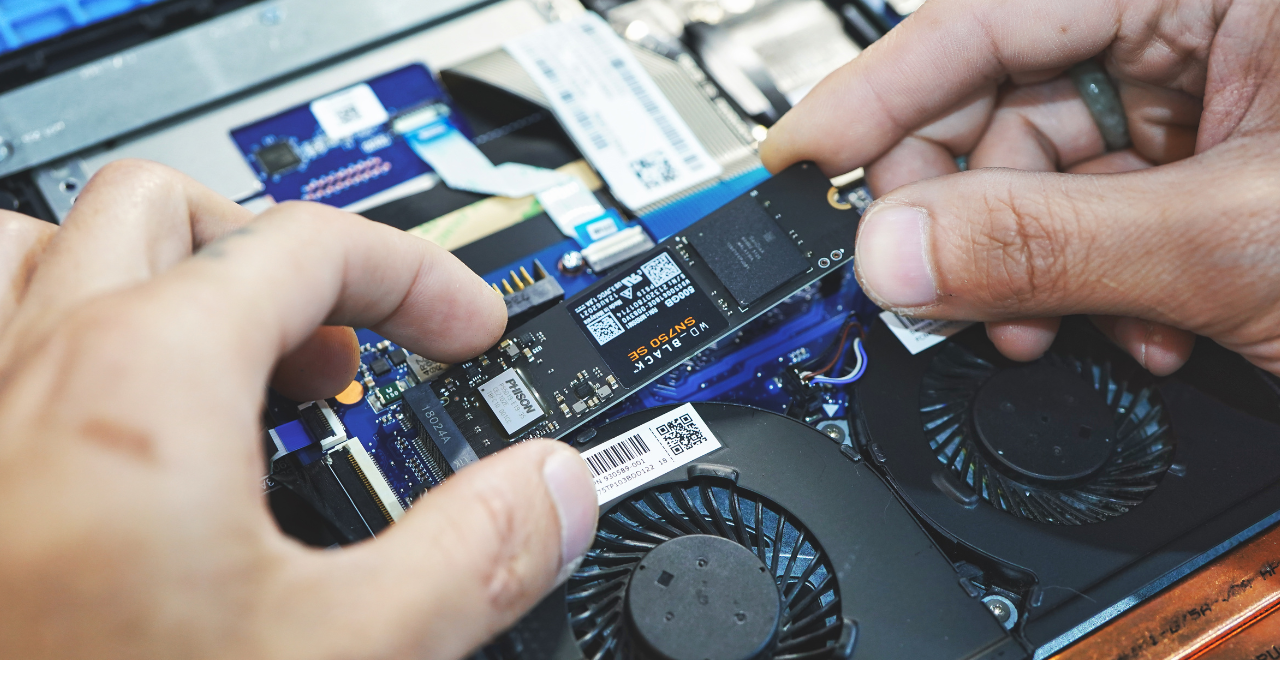Are you pondering if a 512GB solid-state drive (SSD) will suffice for your laptop? Don’t let this concern prevent you from making an informed decision!
With today’s high-capacity storage devices, it’s not uncommon to come across 512GB SSDs. But let’s be honest – without knowing anything about the hardware, or what type of data processing is expected from it, it can be difficult to know if this level of capacity is adequate for one’s needs.
I took on the challenge of answering that question for myself, so I acquired two configurations with identical specifications: one with 1TB and another with 512GB SSDs.
Let’s get down to business!
What is a GB SSD?
If you’ve been wondering: what is a GB SSD? It’s a measure of data that, like GB memory and TB disk space, defines space for storing data.
A standard 64-bit laptop can support up to 128GB RAM; therefore, 1GB equals one billion bytes of storage capacity. This number has become the de facto standard for identifying the upper bound on an SSD’s size – even more so than its price!
Speed vs. storage capacity: Are GB SSDs overkill?
For everyday computing tasks, such as web surfing, word processing, and e-mailing, the vast majority of people won’t require more than 120GB or 160GB of disk space. However, if you plan on storing large amounts of data such as videos, music, and movies – all these activities can quickly balloon up to several terabytes!
512GB SSDs are a common size for laptops, yet there is still plenty of room left for additional storage should you desire it. Add another 1TB HDD or 2TB SSD to your system; each offering up substantial additional storage capacity without compromising speed.
The good news: A 512GB GB SSD is enough for most laptops
Just how big is 512GB? It’s significantly more spacious than the initial 100GB model that came before it.
512GB SSDs are discretely available as an option. However, one must be wary of its limited availability.
Despite its small size, a 512GB SSD is considerably larger than what most laptops currently offer – often accompanied by smaller capacities.
The bad news: If you run out of space
If you operate in an environment with little to no storage, instead of opting for an SSD drive option; consider investing in a smaller form factor such as a 2.5-inch model for extra portability and accessibility.
If the SSD is full, it will do its best to free up space by deleting files or even formatting partitions on the hard drive itself. This may not be ideal – but if an SSD was purchased solely for speed improvements over conventional HDDs, it’s a non-issue.
you’re out of luck
If you’re seeking an unadorned yet highly functional laptop, the pricing and essential characteristics of SSDs will be your primary concern.
If you shop around, chances are that 512GB is more than sufficient for most users who require speed and storage space. You can even go as high as 1TB with one purchase – but this particular capacity may present a challenge for mobile computing applications!
An even worse alternative: Forgetting your data can lead to irrecoverable losses
Careless data removal and deletion can be an important decision for any user seeking to properly secure their files. However, if you mistakenly delete or lose data, it could lead to considerable losses; especially when such information is irreplaceable!
If your data is irretrievable, the only option available may be a full system recovery using a specialized tool such as Acronis True Image. For example, in times of emergency VA disaster response can quickly restore and recover a computer’s data with just one click – all without requiring any cooperation from users whatsoever!
But beyond file recovery options like this, there are some interesting secondary applications that can help mitigate the effects of losing crucial data.
Best practice guide for determining if a GB SSD is enough for your laptop
At this juncture, it becomes apparent that the amount of data you’ll require is dependent upon your application needs and working environment. Envision a scenario whereby you’re required to transverse through a densely populated metropolitan area on an occasional basis; beyond that population figure alone, we cannot predict what types of data will be required by each user – so it’s essential that any SSD purchase be tailored towards individual requirements!
For example, if you require frequent access to movie-related content or lengthy word-processing documents – all with minimal internet usage – a smaller capacity SSD may suffice. On the other hand, if one prefers to conduct extensive internet browsing or requires plenty of apps and applications as well as intensive multitasking – then planning ahead for an SSD upgrade may be prudent!
Conclusion
The truth is that no one knows for sure whether a 512GB GB SSD will suffice for their laptop. It’s entirely possible that your machine does not need anything even larger than a 256GB SSD – or perhaps even less! So, it’s worth investing in a new drive and attempting to see if it performs any better with a wacky capacity.
Did you encounter a situation wherein you purchased an SSD with more capacity than you needed? If so, share your tale of woe in the space below!




